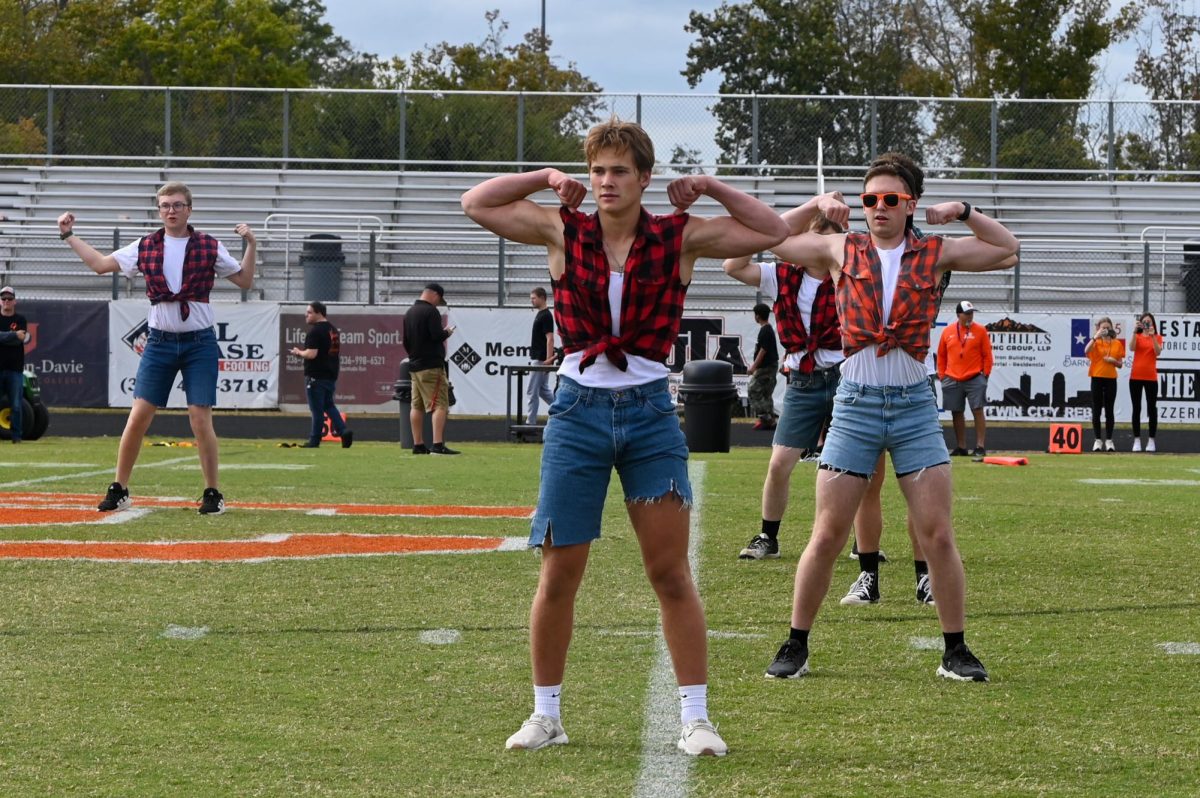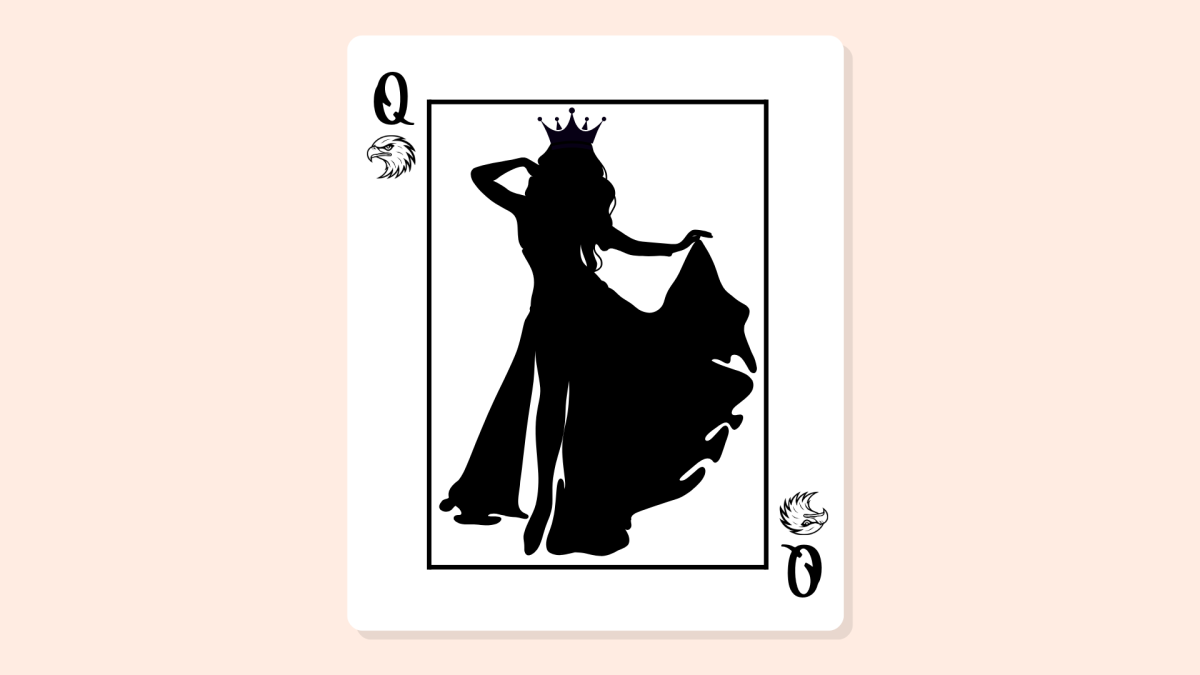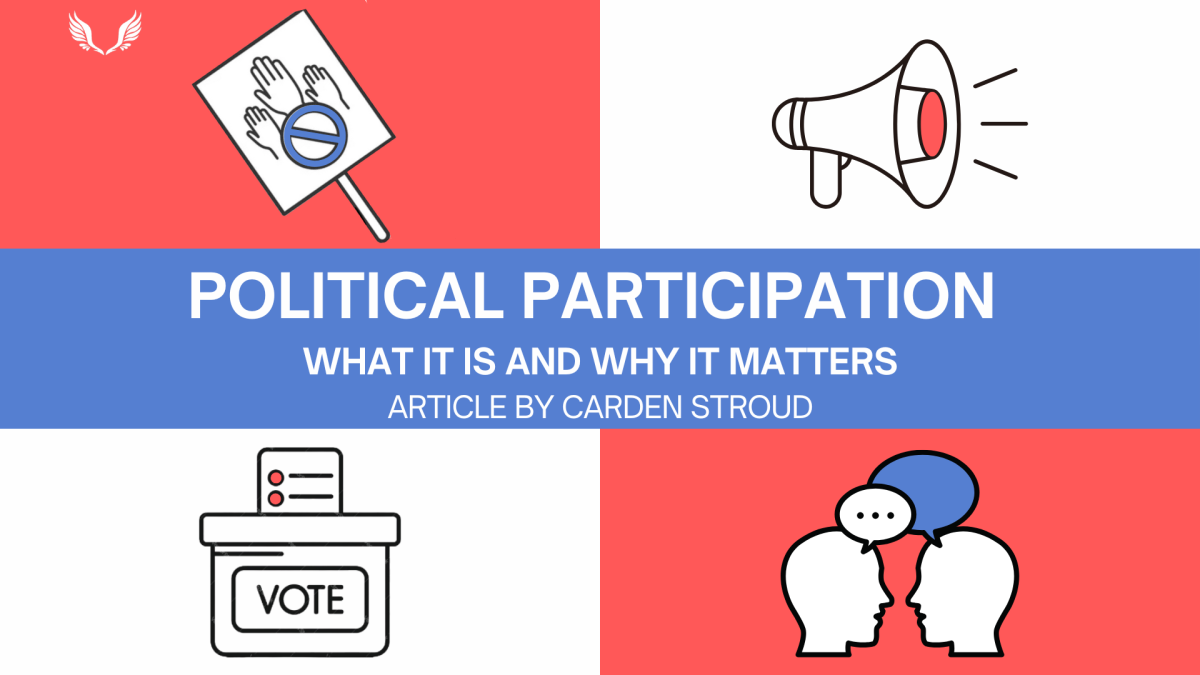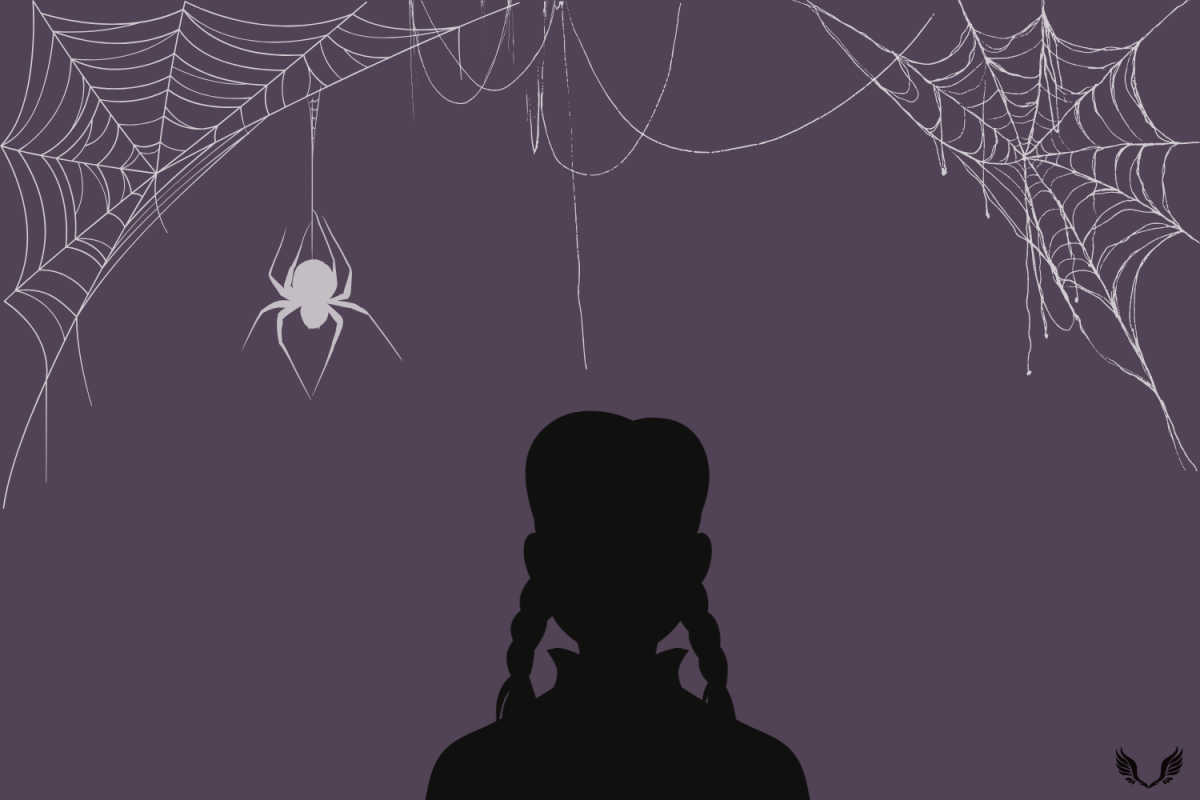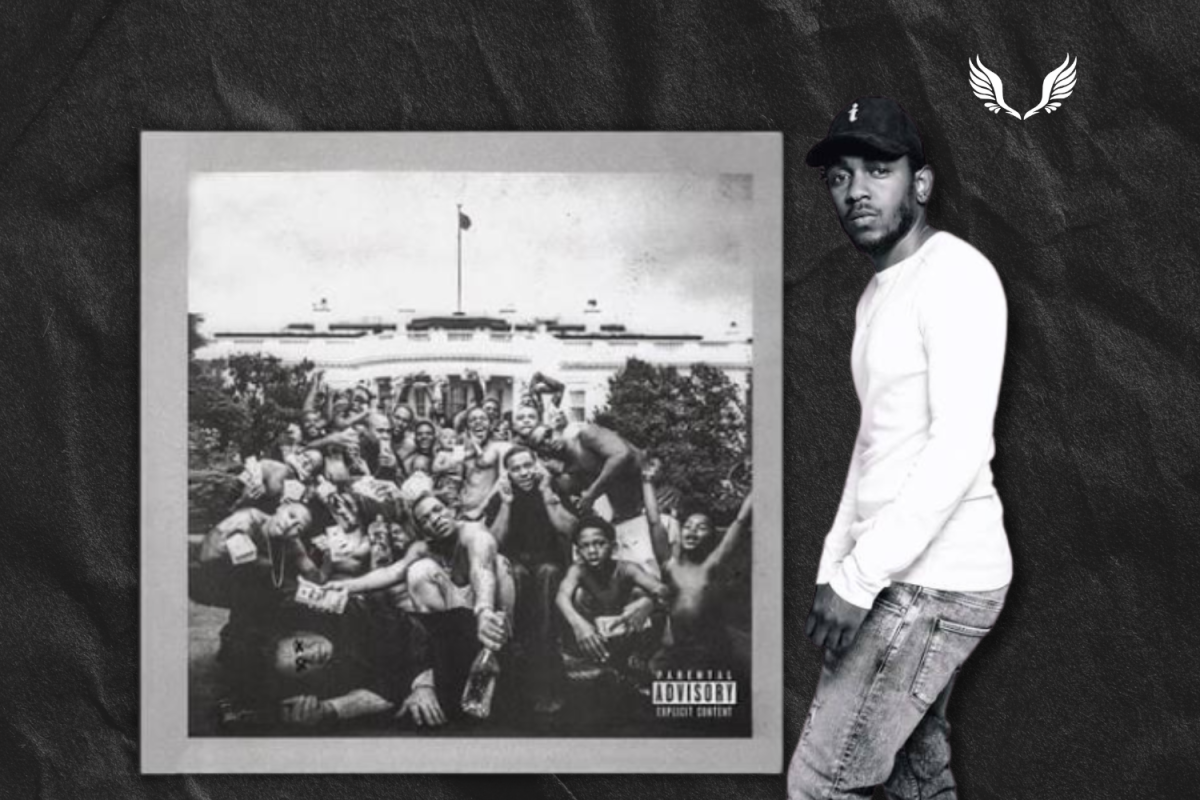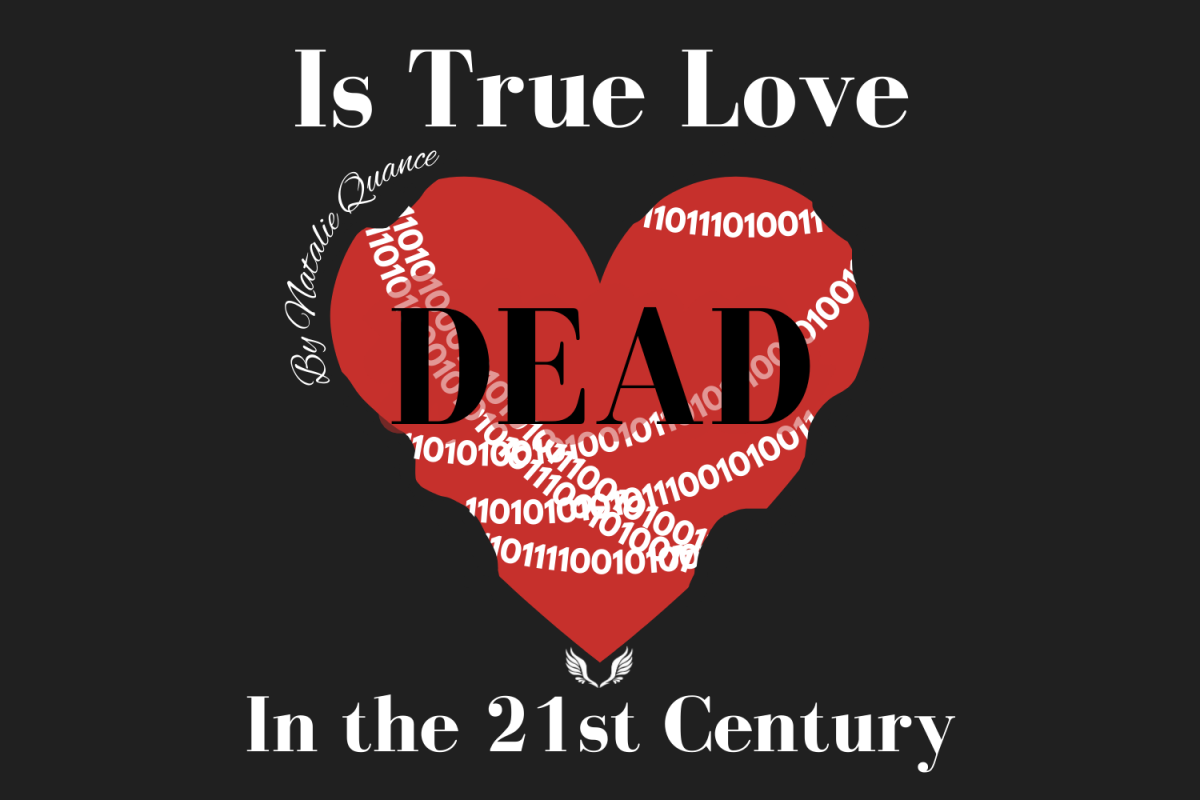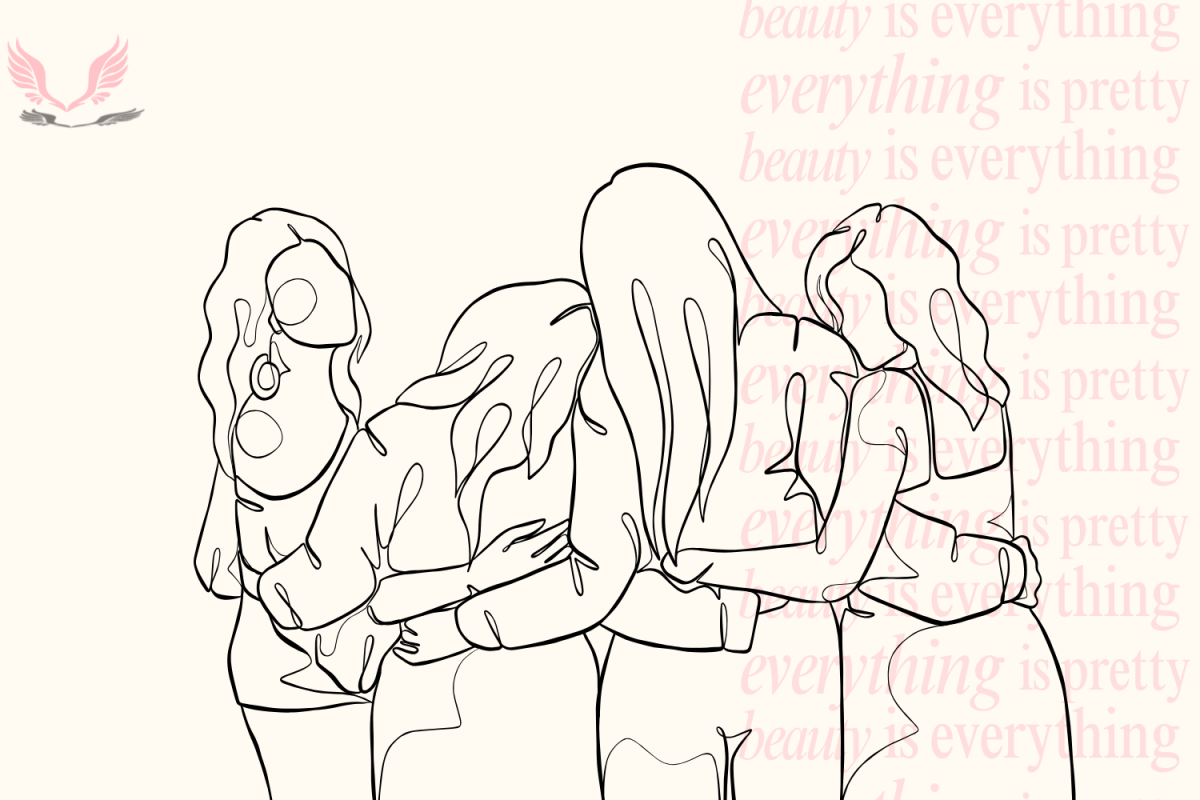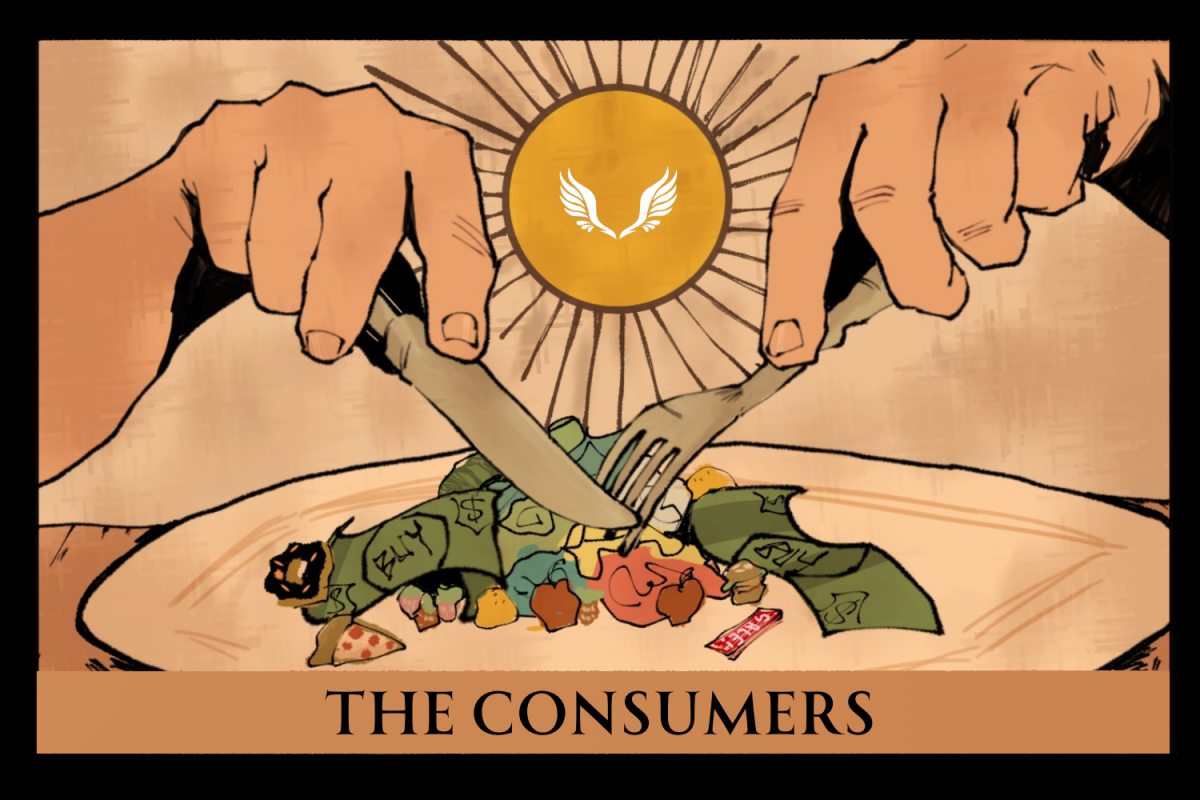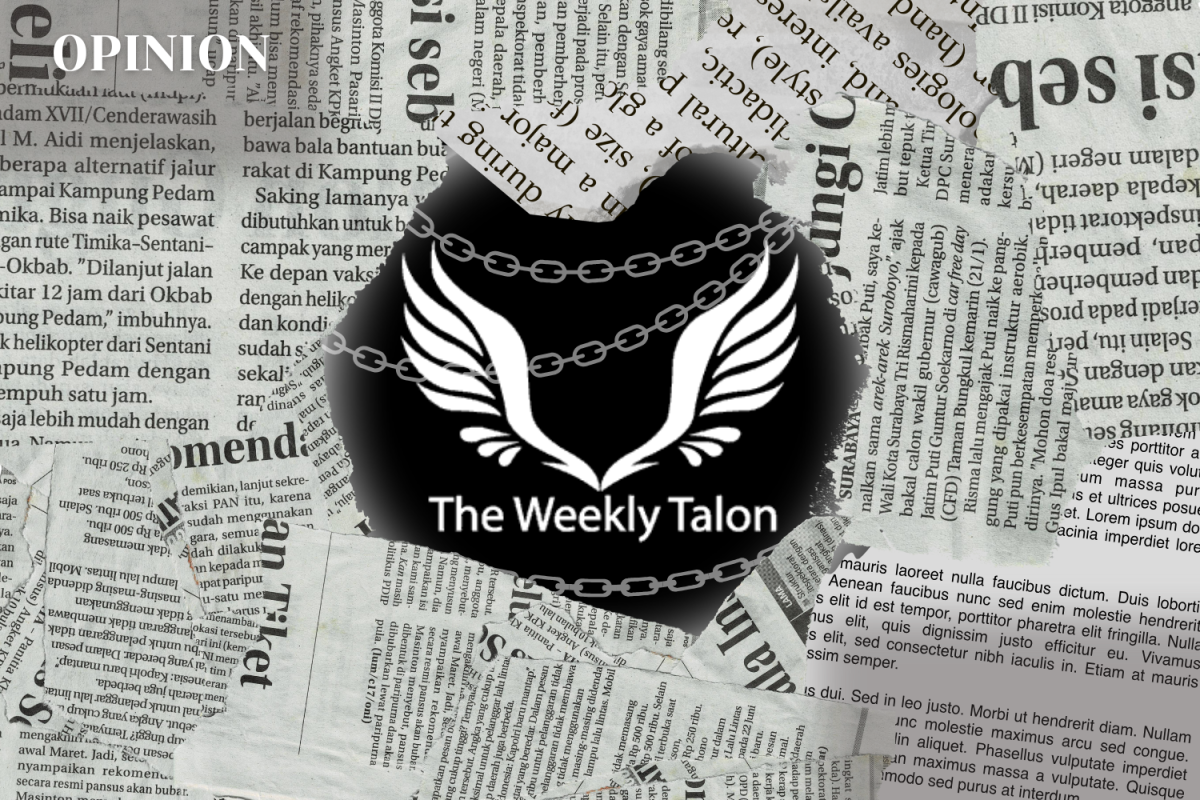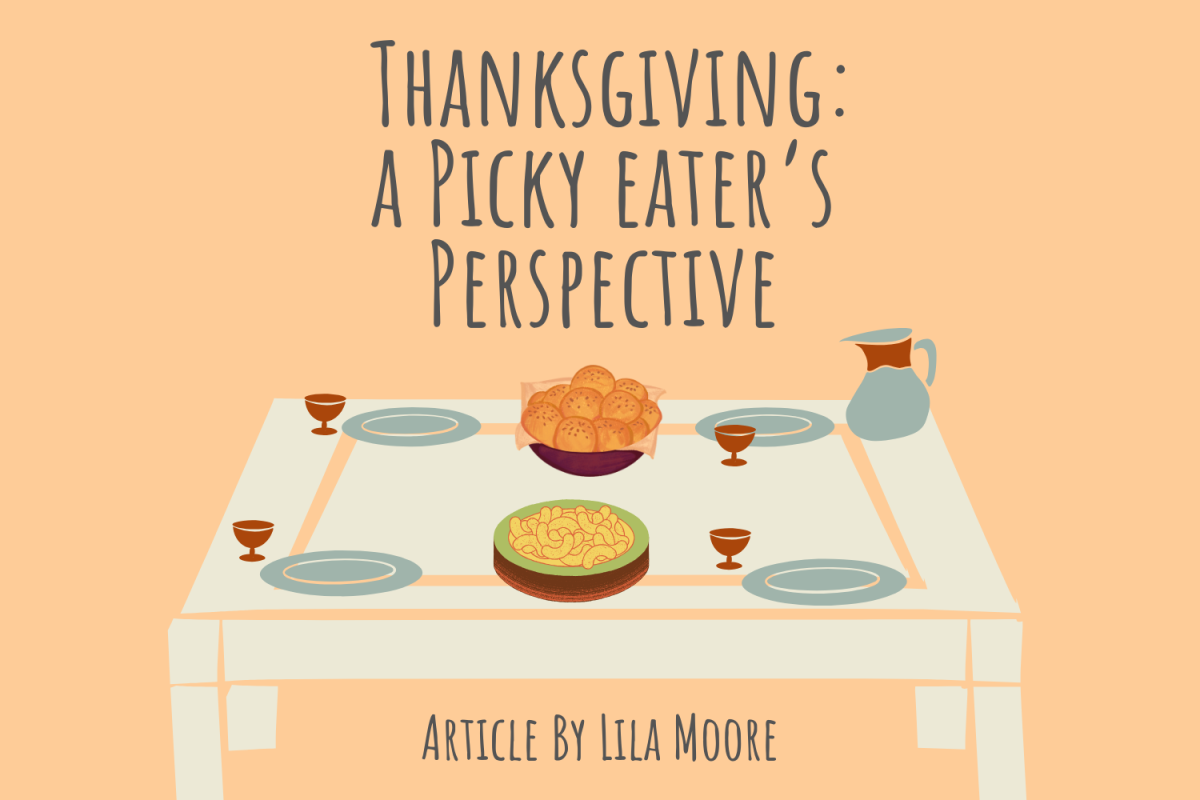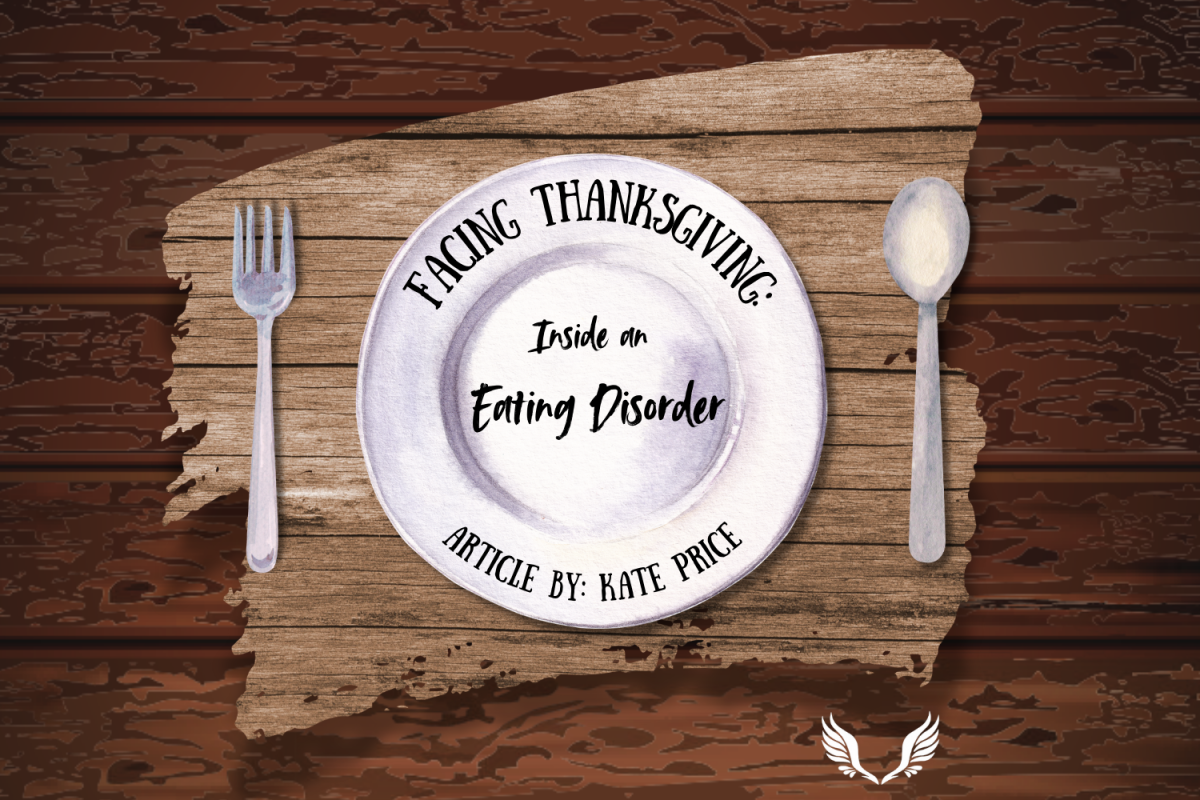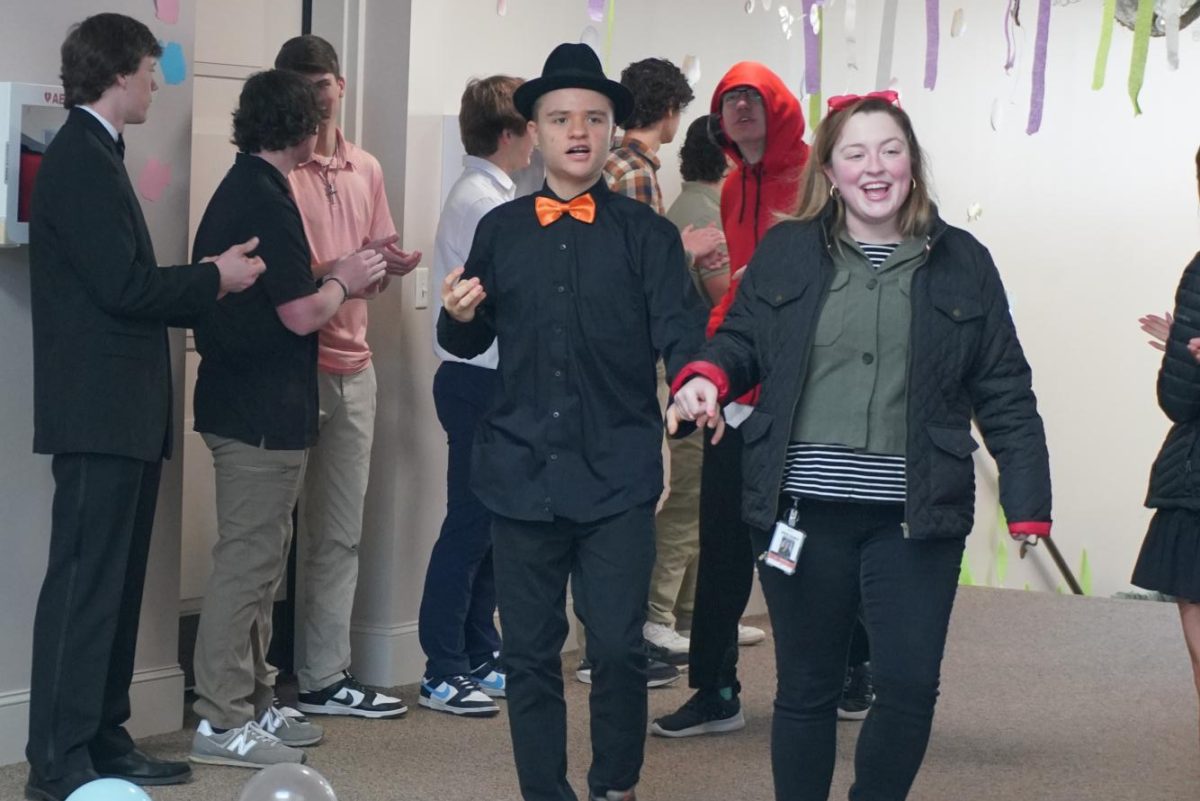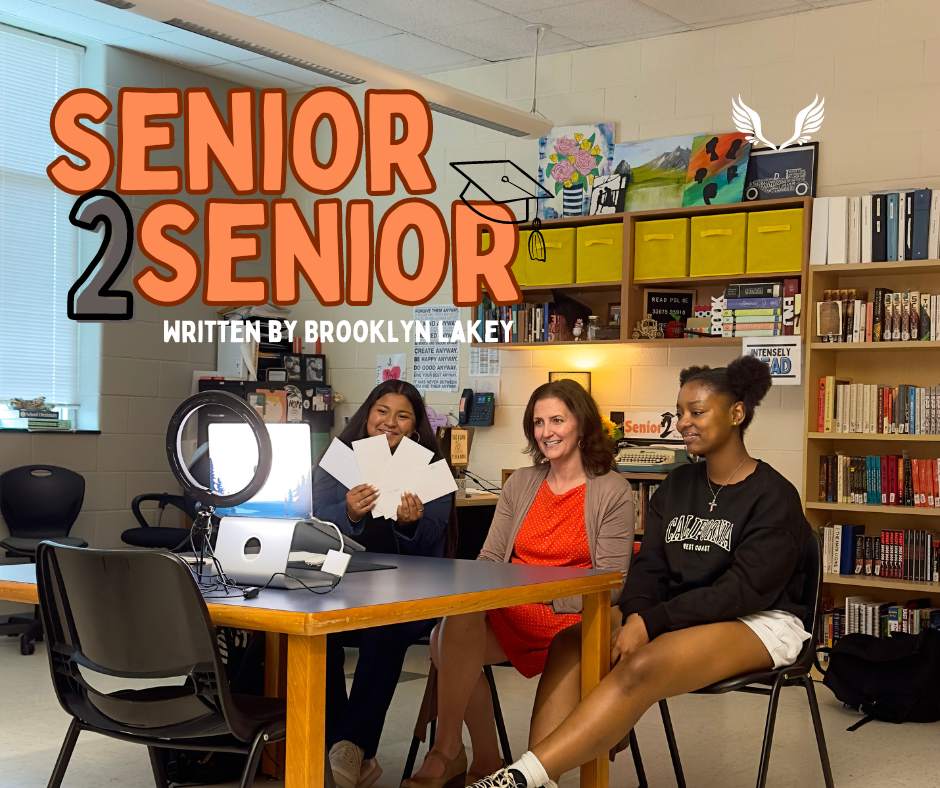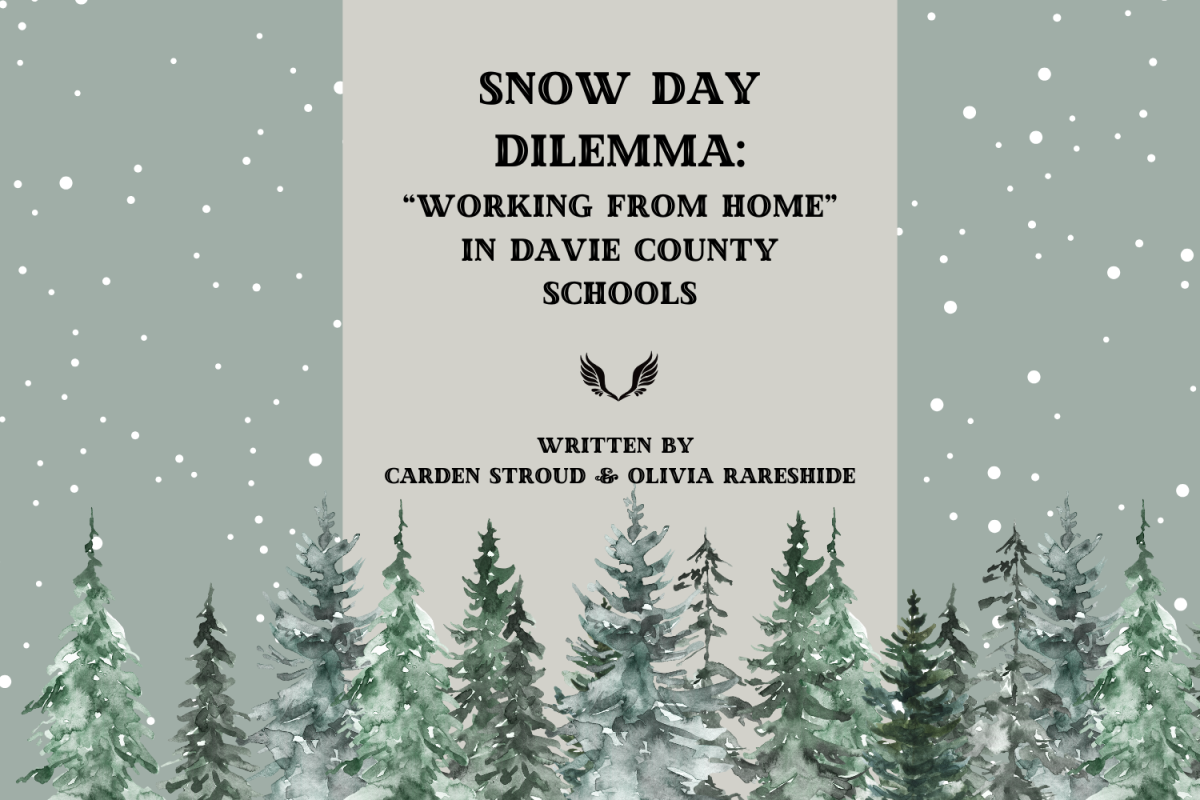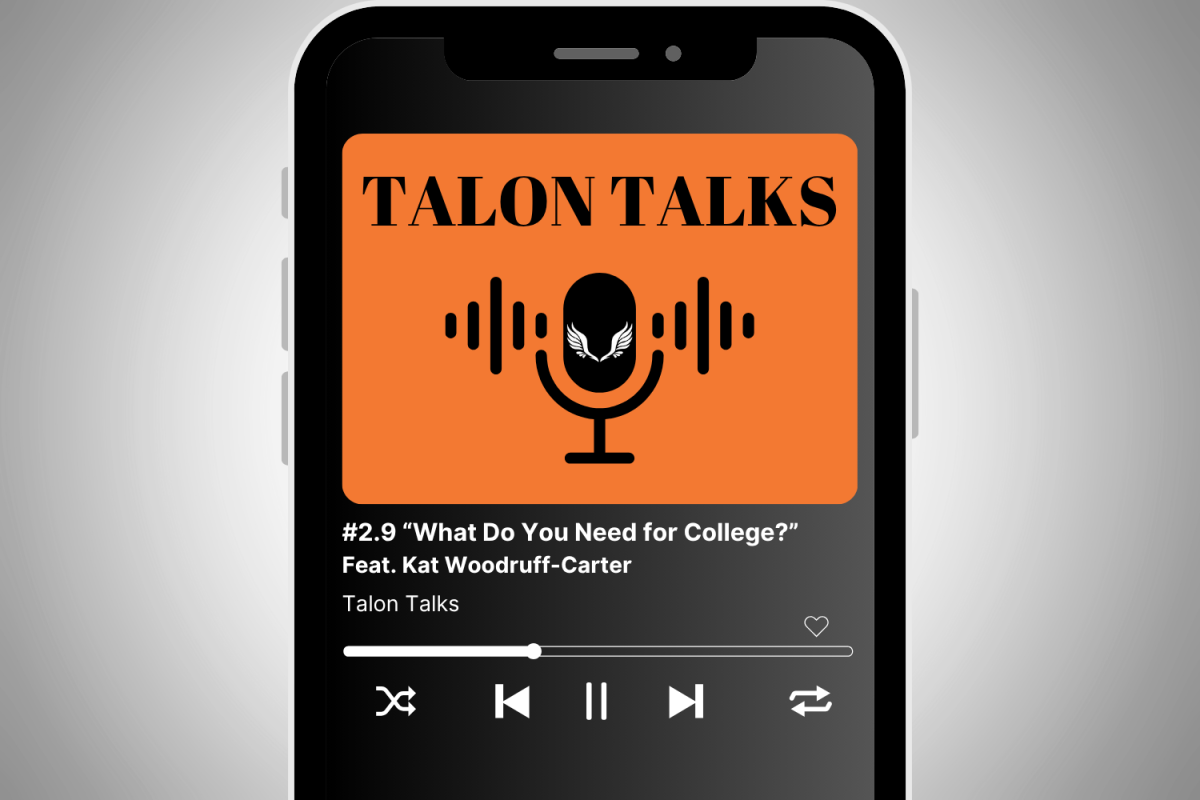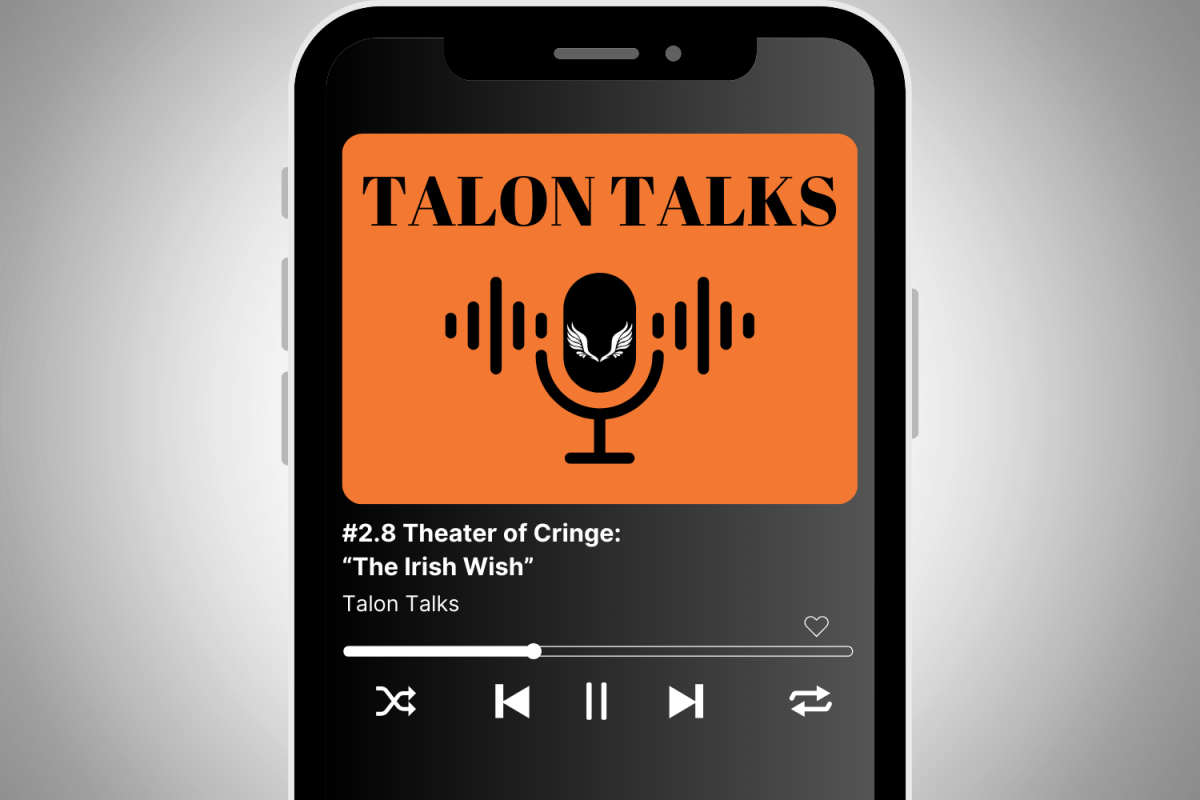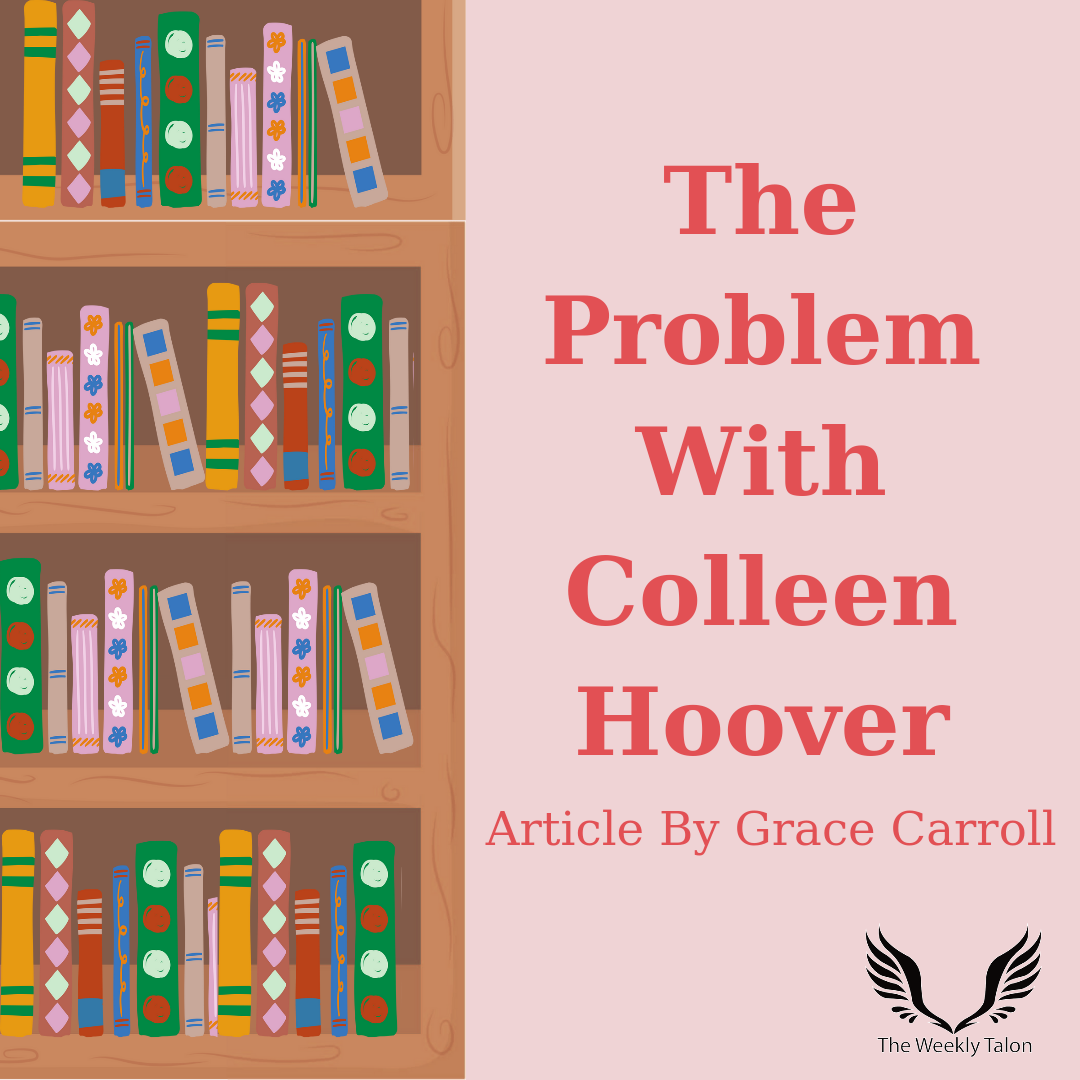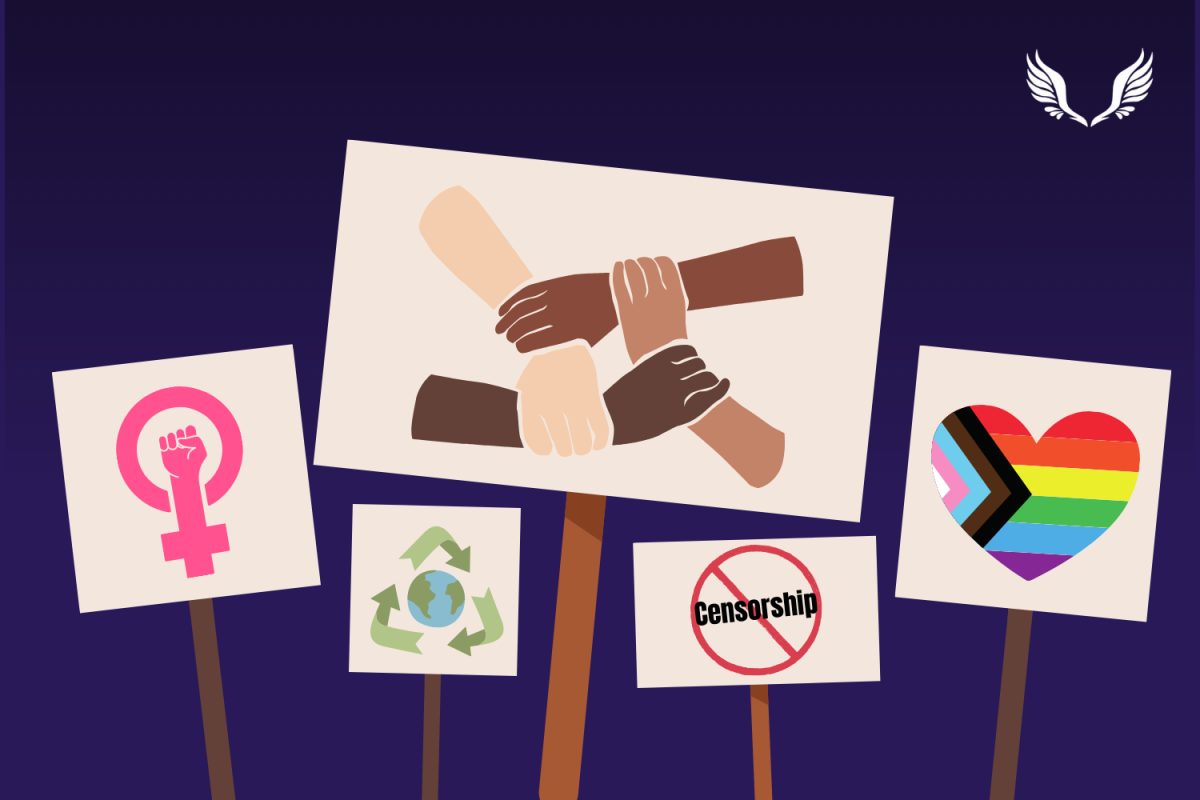Take a walk around your local Barnes & Noble or even Davie High. You’ll often see books with bold lettering and lots of colors. Oftentimes, these eclectic covers belong to books written by Colleen Hoover, a writer who has more recently taken youth across the world by storm with her large collection of romance novels, the most popular of which fall under the new adult category (books marketed to age 17+ audiences). Despite this, these books are quite popular with the young adult market, and she is considered one of the most popular authors in America. She covers a wide range of topics, some even delving into touchy subjects like domestic violence and drug abuse. While covering issues like these is incredibly important, it can be difficult to do so in a manner that is tasteful and delicately put.
There is a theme that rears its head in a lot of Colleen Hoover’s books: the romanticization of abuse and toxic relationships. It is so important that someone with an audience as large as Hoover’s does not depict abusive situations that can be interpreted as romantic or enjoyable.
One of Hoover’s most popular books, “It Ends with Us,” follows a girl named Lily as she navigates her relationships with others and past trauma. Unfortunately, Lily finds herself in an abusive relationship with a character named Ryle.
The abusive behavior begins in the book’s very first pages. After the protagonist, Lily, meets her love interest, he verbally harasses, pokes, and prods her into a date with him. Hoover describes this moment as passionate and hopelessly romantic. As if it isn’t enough that it has been ingrained in women that “when a boy teases and bullies you, it just means he likes you!” Hoover presents this clear harassment as chivalry.
Ryle’s inability to take no for an answer develops throughout the book. Coming from a family of abuse, Lily recognizes the signs but chooses to ignore them. The way that Lily pushes off Ryle’s behavior is an incredibly real and raw reaction to domestic violence, especially since oftentimes those in abusive situations will easily stay with their abusers because of Stockholm syndrome.
Stockholm syndrome is a psychological occurrence that develops in trauma victims of all situations. A trauma victim with Stockholm syndrome will often defend and feel safer with their abuser because of attachment. Victims can often use this as a tactic of survival against those harming them. This term comes from the Stockholm, Sweden, robbery where captives formed bonds with their captors.
Despite the fact that what happened to Lily isn’t just a fairy tale, but rather what happens to people all over the world, the way it was depicted is distasteful and almost directly fetishizing. Hoover often calls this character “a good guy, with a lot of problems.”
Unfortunately, Hoover’s ongoing fetishization and inappropriate depictions of harsh topics do not stop in her most popular book. In her bestseller November 9, one of the male characters weighs the option of resorting to physical force in order to prevent a woman he was interested in from exiting a vehicle. This character is still depicted as charming and, overall, a good person. How many books can one person write where fictive abusive men can still earn redemption?
Another common theme in Hoover’s novels is her mediocre writing of female victims. She caters to this fantasy of a power struggle between a man and a woman and then publishes it without thought. It’s interesting for a novelist as popular as her to have such a below-average writing skill. It’s important in the writing world that we give power and publicity as readers to the right people, especially if they have such a young, impressionable audience.
When I was younger, I developed the concepts of what love and relationships were supposed to look like from the and other media I was surrounded by. As a writer myself, I acknowledge how difficult it is to be creative enough to frame something appealing to a variety of people. But there is something to be said about authors who can take something as awful as domestic violence or child abuse and use it to enable traumatized individuals to speak out against oppressors.
Colleen Hoover did not start this disgusting trend, but she has greatly contributed to it. Other books like “Fifty Shades of Gray,” the “Twilight “saga, and even the classic Nabokov novel “Lolita” depict misogynistic men as heroes. This fact has changed the narrative for earlier generations who have already had to fight years of oppression against the patriarchy.
So with all this being said, how do we undo this mindset? To be truthful, there is no such thing as “unwriting” books. Fortunately, we as readers have the choice. We can encourage authors that contribute to awareness of domestic violence and abuse, or we can continue to uplift authors who choose to write essentially abuse fanfiction. There are so many novels that dive into abuse and other harsh topics without painting it as roses. For example, “My Dark Vanessa,” written by Kate Elizabeth Russell, is incredibly powerful and impactful. Russell was able to hold the topic in the palm of her hand with such fragility and care and created a phenomenal novel for young women as a result.
For many, February is the perfect time to indulge in a romance novel or movie, and at the end of the day, you make the decision as to what is best for you. However, when making the decision as to who you want to support, always choose the authors and creators who uplift survivors.

